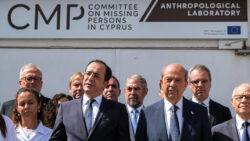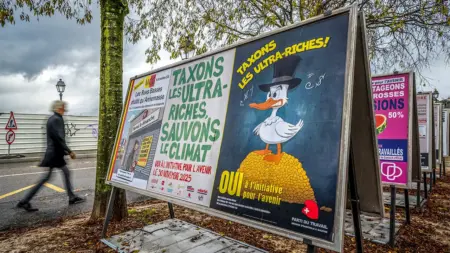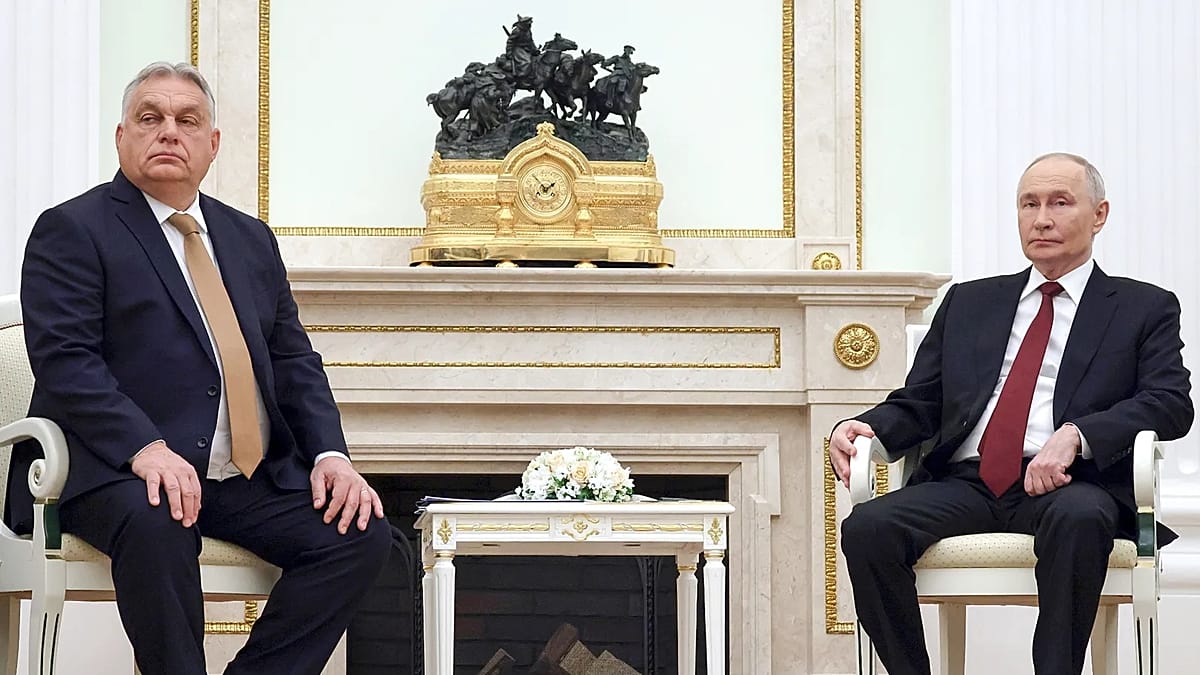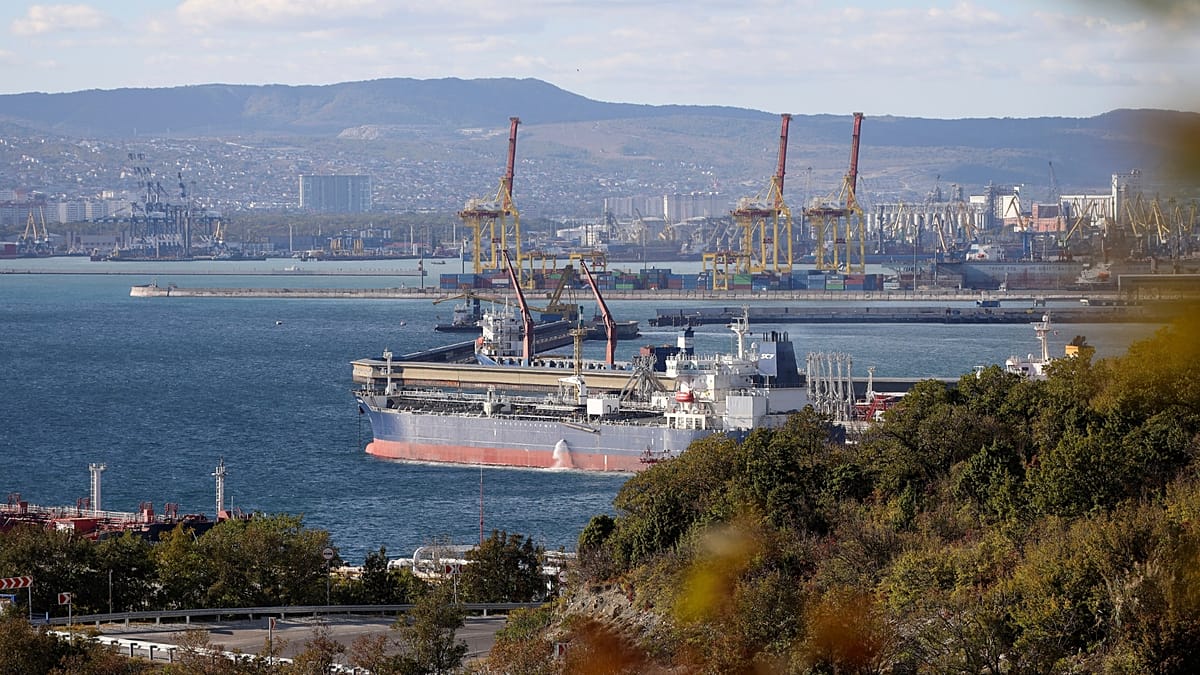Cypriot leaders on Friday urged members of their rival communities to come forward with information on hundreds of victims from conflicts which swept their island half a century ago, during a symbolic visit to the lab of the UN-backed Committee on Missing Persons.
President Nikos Christodoulides, the Greek Cypriot leader, and his Turkish Cypriot counterpart Ersin Tatar visited the CMP’s anthropological lab in Nicosia in a move to build trust and confidence at a time of deadlocked peace talks for the divided island that have been in limbo for six years.
“Both leaders called upon persons who have information about possible burial sites to share this information with the CMP,” said a UN statement after the visit.
“They reminded witnesses they can request confidentiality for any information shared, as credible information can accelerate the whole process of location, exhumation and identification of remains of missing persons,” it added.
Cyprus has been divided since 1974 when Turkish forces occupied the island’s northern part in response to a military coup sponsored by the junta in power in Greece.
Since 1974, the fate of hundreds of people remains unknown; only around half of those declared missing have received a proper burial.
“The two leaders reaffirmed their mutual understanding that CMP’s responsibility lies first and foremost with the families of missing persons, as it brings closure to the affected families through the return of the remains of their loved ones for proper burial,” the UN said.
The CMP was established, under an accord between the two communities, with the aim of exhuming, identifying and returning to their relatives the remains of 492 Turkish Cypriots and 1,510 Greek Cypriots who went missing in 1974 and during inter-communal fighting of 1963-1964.
According to the CMP, 741 Greek Cypriots missing have been identified, and the whereabouts of 769 are still unknown.
Of the Turkish Cypriots, 200 remain missing.
“We very much want to do our best so the pain of the families is reduced,” said Tatar. “We will continue to encourage people to come forward… before they die, because there are a lot of people who know.”
Christodoulides said missing persons “is one of the best confidence-building measures… as further cooperation in this area will also help in the effort to break the deadlock and resume talks.”
The European Commission welcomed the joint visit to the lab in the Nicosia buffer zone, saying it “comes at a time of much-anticipated progress towards the solution of the Cyprus issue”.
(AFP)





